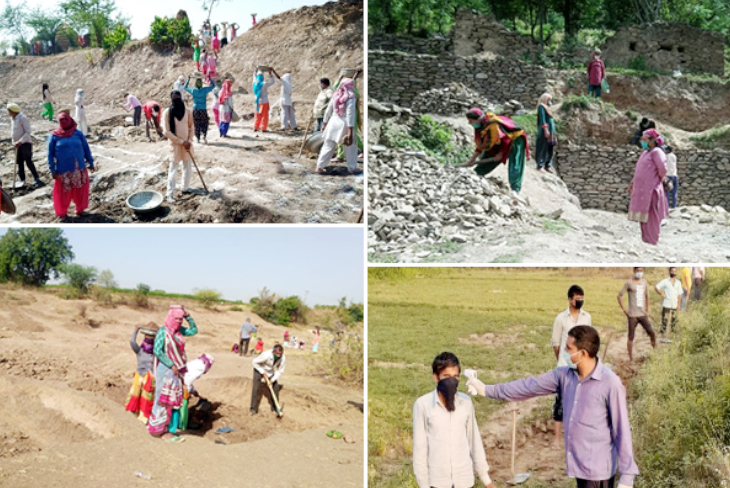The outbreak of COVID-19 has hugely disrupted the lives of workers who had moved from their native villages to cities in search of work. Dealing with loss of livelihoods in cities amid the pandemic and lack of socio-economic cushion there, lakhs of migrant workers have started heading back to their villages. In light of this huge reverse migration, a major task at hand is to provide them with livelihoods.
In rural areas, the Mahatma Gandhi National Rural Employment Guarantee Act (MGNREGA) would be a major source of livelihood for the migrant workers returning home. As we appeal to the governments to expand rural employment guarantee to absorb the large labour force returning to the villages, our teams across states are facilitating and ensuring work for community members under MGNREGA. As part of our efforts, we are also monitoring the work that’s happening, besides sensitizing workers on the precautions to be taken during work. Our teams are ensuring that physical distancing is being practiced at the worksites, that thermal scanning is being carried out for workers and that other safety measures, such as masks and hand-washing facilities, are being made available and accessible to all workers.
As on May 20, 2020, in Uttar Pradesh, we have been able to support more than 29,000 people from 14 districts to access work under MGNREGA. In addition, 1,746 workers from four districts of Haryana, 1,430 from five districts of Punjab and 680 individuals from three districts of Himachal Pradesh have received employment under MGNREGA. In Gujarat, nearly 850 individuals, including 289 single women, from six districts have been supported to get work.
In the coming weeks and months too, our regional teams and allies would continue to facilitate opportunities to enable this large population to earn a living in the post-COVID context, including planning together with returnees, options for collective livelihoods and enterprises.

